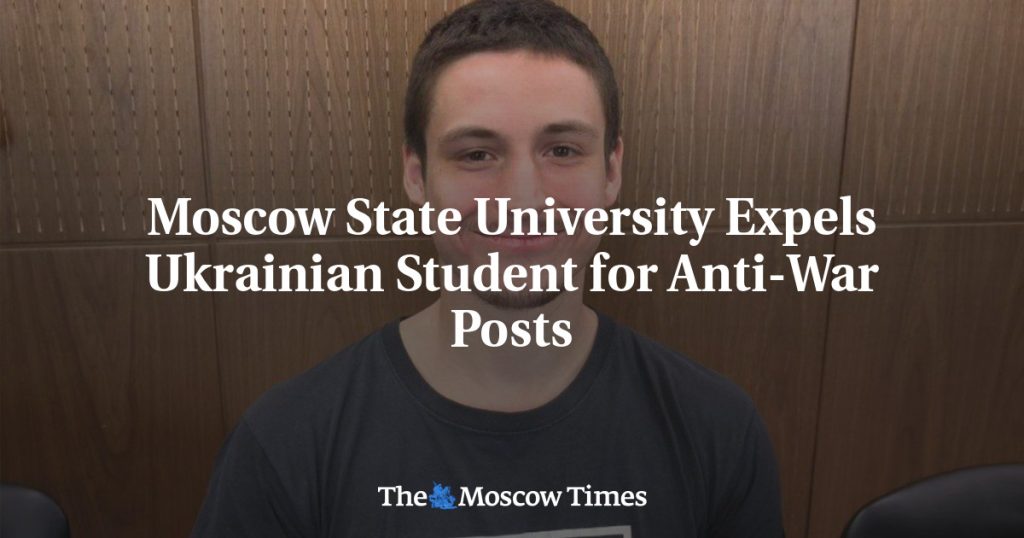A Ukrainian student, Serhiy Hulko, has faced multiple arrests in Russia for his anti-war social media posts. He has been detained three times since early April on charges including displaying “extremist” symbols and calling for the bombardment of Moscow in response to the invasion of Ukraine. Hulko has expressed his anger towards Russian troops for bombing his city and causing the death of people close to him. He believes that screenshots of his posts were sent to the authorities by someone he knows, leading to his arrests and detention.
Moscow State University has expelled Hulko from its Faculty of Medicine due to the offenses and administrative penalties revealed by his actions. The university clarified that there were no complaints regarding Hulko’s academic performance and that it was not aware of his public display of political and ideological beliefs within the university premises. Following his expulsion, Hulko has been placed in a detention center for migrants awaiting deportation. His girlfriend shared concerns that he may be deported to Georgia as a result of his actions in Russia.
The situation involving Hulko highlights the suppression of freedom of expression in Russia, particularly regarding opinions that go against the official narrative of the government. His arrests and expulsion from the university signify the authorities’ crackdown on dissenting voices and their efforts to control the narrative surrounding the war in Ukraine. Despite facing repercussions for his views and statements, Hulko remains committed to expressing his beliefs and holding Russia accountable for its actions in Ukraine.
The case of Serhiy Hulko also sheds light on the challenges faced by individuals who speak out against the Russian government’s policies and actions. The targeting of students and activists who voice opposition to government actions demonstrates the risks associated with expressing dissent in a repressive political environment. Hulko’s expulsion from Moscow State University and subsequent detention serve as a reminder of the consequences that individuals may face for speaking out against the government and advocating for change.
The expulsion of Serhiy Hulko from Moscow State University raises concerns about academic freedom and freedom of expression in Russia. The university’s decision to expel Hulko over his social media posts reflects a broader trend of restricting dissenting voices within educational institutions. By punishing students for expressing their opinions, universities contribute to the suppression of critical thinking and open dialogue, further limiting the space for diverse perspectives and challenging the status quo. Hulko’s case underscores the importance of defending academic freedom and protecting the rights of students to express their views without facing retaliation or censorship.
In conclusion, the expulsion of Serhiy Hulko from Moscow State University for his anti-war social media posts reflects the ongoing crackdown on dissenting voices in Russia. Hulko’s arrests and detention highlight the challenges faced by individuals who speak out against government actions and advocate for change. The university’s decision to expel Hulko raises concerns about academic freedom and freedom of expression in Russia, emphasizing the need to defend these fundamental rights and protect individuals who express dissenting opinions. Hulko’s case serves as a reminder of the importance of upholding the principles of free speech and open dialogue in fostering a democratic and inclusive society.


